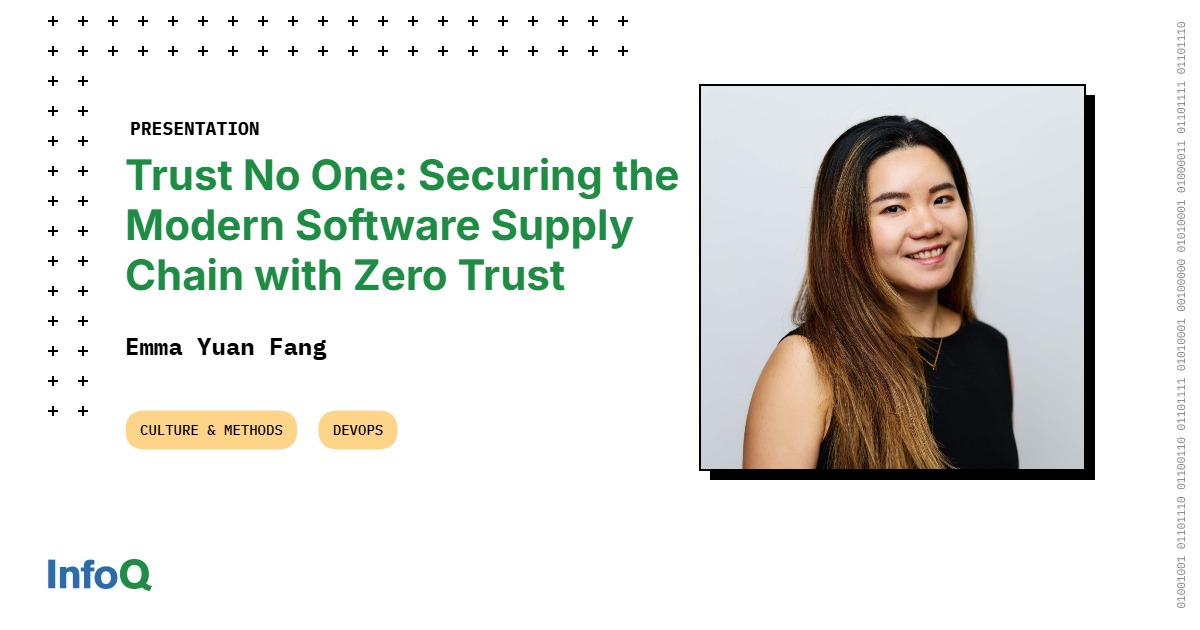
"I'm going to run through the threat landscape of software supply chain. Then I'm going to explain what are the Zero Trust principles. How do we utilize them as embedded into developers' mindsets to apply to securing the software supply chain. Then, I'm going to talk about how do we effectively manage and select dependencies and all the security controls that we can implement within the CI/CD pipeline."
"First of all, I'm going to talk about the threat landscape of the software supply chain. We need to understand what are the threats coming out from this supply chain in terms of producing the code, the dependencies, and coming out. How do we as developers and companies consume those packages, those dependencies. Many of you might have already heard about the XZ Utils' backdoor."
Software supply chains face threats from code production, third-party dependencies, and how organizations consume packages. Zero Trust principles require verifying and minimizing implicit trust across components and actors. Embedding Zero Trust into developer mindsets improves decisions about dependency selection and secure coding. Effective dependency management and CI/CD controls reduce the risk of supply-chain attacks and backdoors. Implementing security controls in pipelines, selecting trusted packages, and maintaining visibility over dependencies help mitigate risks. A practical, high-level checklist supports organizations in adopting these measures and improving supply-chain resilience.
Read at InfoQ
Unable to calculate read time
Collection
[
|
...
]